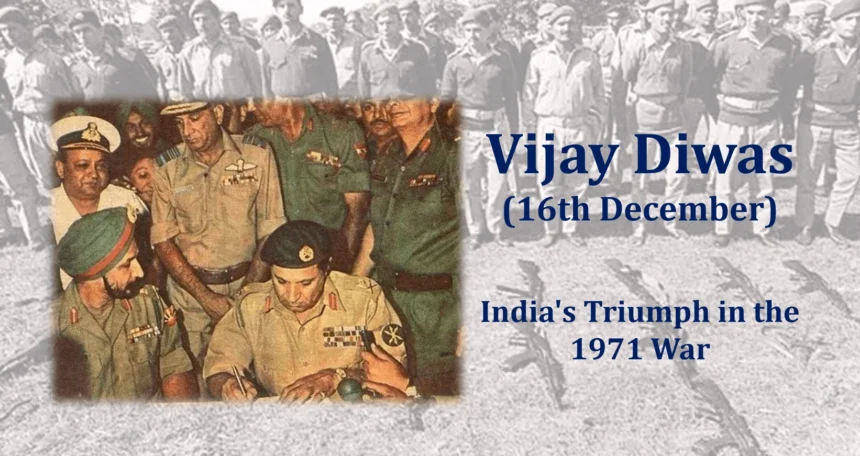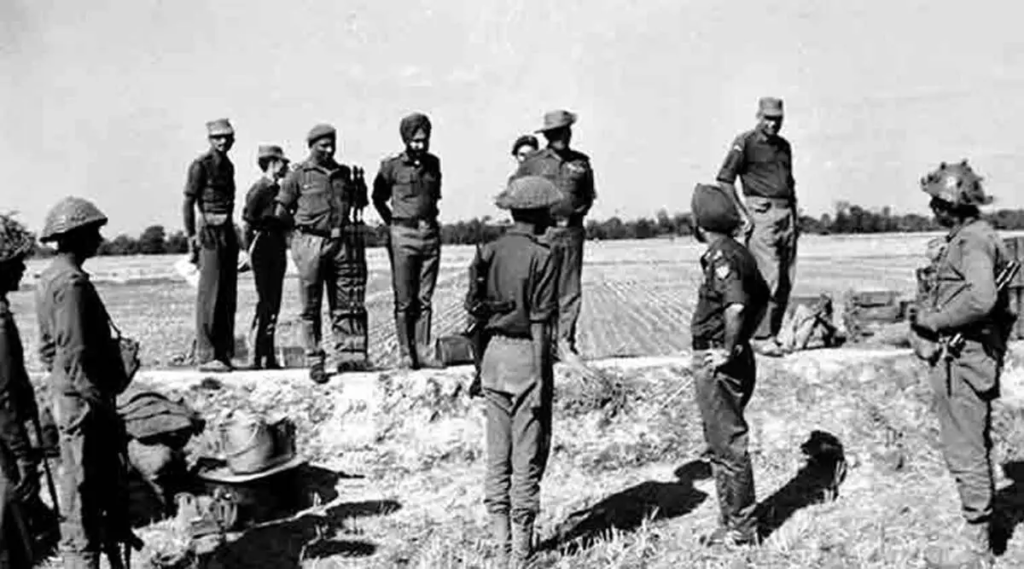The Significance of Vijay Diwas
Vijay Diwas, observed on December 16th, commemorates a crucial moment in the history of the Indian subcontinent — the surrender of 93,000 Pakistani soldiers to the joint forces of India and the Mukti Bahini (Bangladeshi freedom fighters). This monumental victory played a pivotal role in the creation of Bangladesh, marking the end of a brutal conflict that resulted in the birth of a new nation.
Victory Day celebrates the sacrifices and valor of those who fought in the war, and it holds immense historical and emotional significance for both India and Bangladesh. However, despite the deep-rooted connection that binds the two countries through this shared history, the manner of the celebrations this year is more subdued.
Veterans Exchange Visit Amid Diplomatic Strain
In a symbolic gesture to honor the shared history of India and Bangladesh, a delegation of war veterans and serving officers from both sides arrived in each other’s countries to participate in the Vijay Diwas events. On Sunday, a delegation from Bangladesh, which includes eight officers of the Bangladesh Army, landed in Kolkata, while a group of eight Indian military veterans arrived in Dhaka. These veterans, who fought in the war, carry with them not just memories but the living history of Bangladesh’s liberation struggle.
However, this year’s participation is markedly smaller than in previous years. Traditionally, both India and Bangladesh would send delegations consisting of 50-plus members, including veterans and their families. This year, however, each country sent a delegation of about 10 people, underscoring the current political climate and the diminishing warmth in bilateral ties.
Tensions Between India and Bangladesh
The decrease in the size of the delegations can be attributed to the diplomatic strains between the two countries in recent years. Relations have been tense, particularly after the political shifts in Bangladesh with the ousting of Sheikh Hasina’s government. Once marked by close ties, the relationship has deteriorated over issues such as border management, water-sharing agreements, and political differences.
The Indian delegation’s visit to Dhaka is a reminder of the historical significance of their partnership during the 1971 war, but also a recognition of the need for renewed diplomacy to bring the nations closer. Both countries remain vital partners in South Asia, but recent developments have shown that the frostiness between them has had an impact on ceremonial exchanges.
The Diminished Scale of Celebrations in Dhaka
In Dhaka, where the celebrations for Vijay Diwas have historically been a massive affair, the absence of the usual grand march-past is noticeable. Traditionally, the streets of Dhaka would come alive with displays of military might and patriotic fervor. This year, however, the celebrations will be low-key, with fewer attendees and no major public events marking the day. The absence of a large procession is a striking symbol of how strained relations between India and Bangladesh have shaped their commemorative practices.
Why the Change?
While the historical bond between India and Bangladesh remains strong, the diplomatic freeze has impacted the level of engagement during key commemorative events like Vijay Diwas. Smaller delegations and the lack of large public displays of affection reflect the broader geopolitical situation. Both nations have been engaged in border disputes, trade disagreements, and political shifts, which have led to a cooling of their once warm diplomatic ties.
The change in the scale of the Vijay Diwas celebrations could also be a response to the changing political environment within Bangladesh, where there has been a shift toward more nationalistic policies, which have sometimes resulted in anti-India rhetoric. Similarly, India’s internal political dynamics, along with its foreign policy priorities, have also played a role in shaping the current state of affairs.
War Veterans as Living Testimonies of History
Despite the strained diplomatic ties, the war veterans from both countries play a crucial role in maintaining the historical memory of the 1971 Liberation War. For many of them, the bond formed during the war transcends national borders. Veterans often speak of the shared struggles they faced and the mutual respect between the Indian and Bangladeshi forces. Their presence at the Vijay Diwas celebrations serves as a reminder of the unbreakable link forged in the heat of battle.
For both India and Bangladesh, these veterans are living testimonies of the sacrifices made during the war. Their participation in this year’s Vijay Diwas events, albeit on a smaller scale, underscores their continued importance in bridging the gap between the two nations.
The Future of India-Bangladesh Relations
Looking ahead, the future of India-Bangladesh relations hinges on several factors. Both nations have the potential to rebuild their ties, but this will require careful diplomacy and a commitment to addressing the underlying issues that have caused friction in recent years. The shared history of the 1971 war remains a powerful tool for diplomacy, and it’s likely that both sides will find ways to tap into this connection to ease tensions.
As for the Vijay Diwas celebrations, while this year’s festivities may be more subdued, the hope remains that in the future, India and Bangladesh can once again celebrate this significant day with the same enthusiasm and unity that marked the celebrations of the past.
Read More: Maharashtra Ministers List 2024: Full Overview of the Cabinet Expansion
Conclusion
The Vijay Diwas 2024 celebrations will serve as a reminder of both the triumph and the challenges that India and Bangladesh face in their bilateral relationship. The exchange of war veterans, though smaller in scale this year, is a testament to the enduring legacy of the 1971 war and the shared history of the two nations. Despite the current political challenges, both India and Bangladesh must find ways to honor their past, while working toward a future that fosters cooperation and peace.










